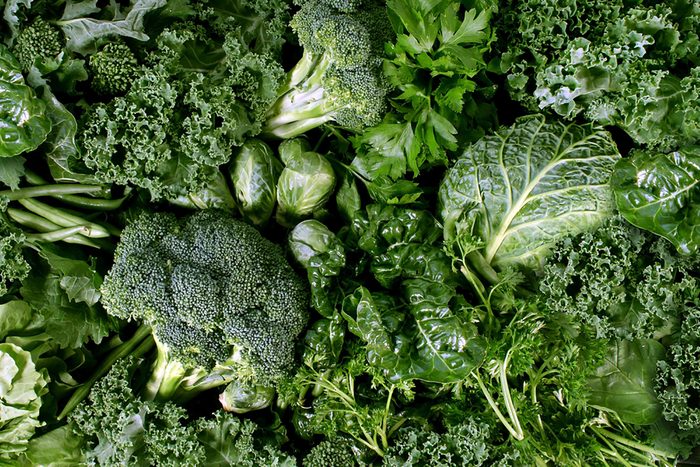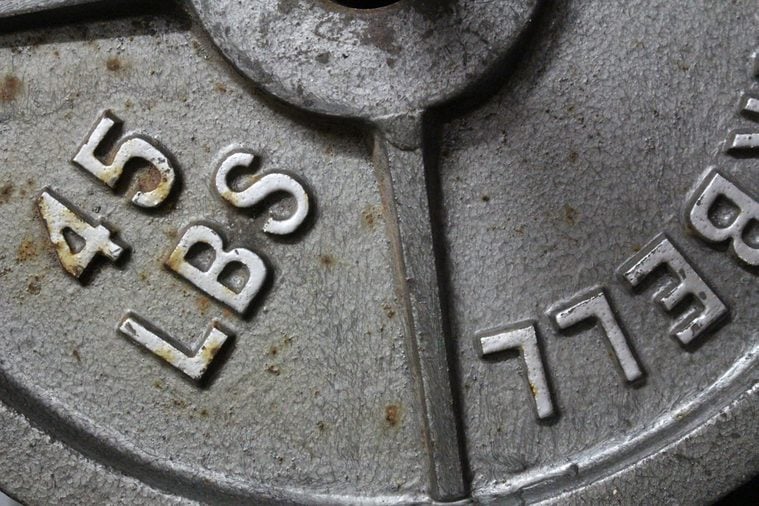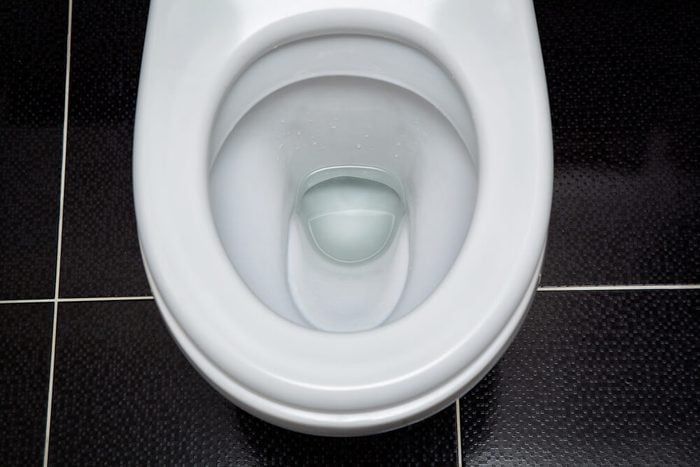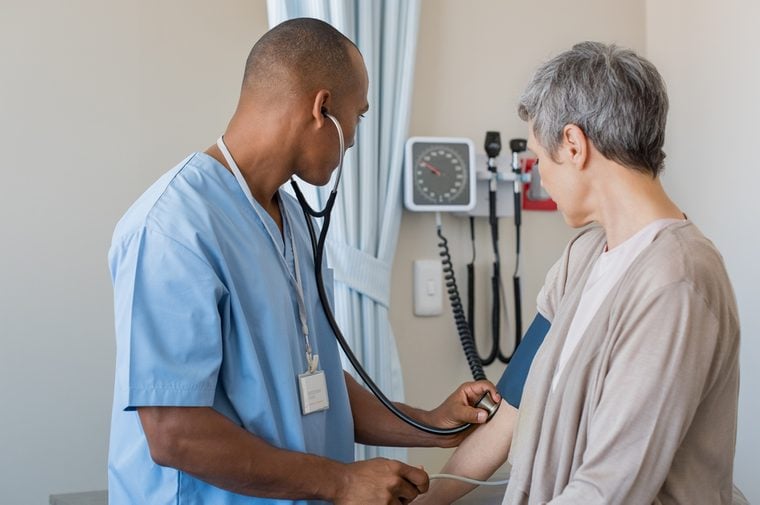Assess your pain
Pause a minute to take stock of your symptoms: Right side abdominal pain can be vague, and the specifics will help you find the right diagnosis, says Mia Finkelston, MD, a family doctor in Leonardtown, MD. How long has the pain been there? When did it start? Is the intensity persistent or does it come or go? Does it wake you up from sleep? Is it sharp or dull? Does it change with activity? Can you still poop? What makes you feel better? And while you’re assessing all of this, definitely consider if you have one of these seven types of abdominal pain.
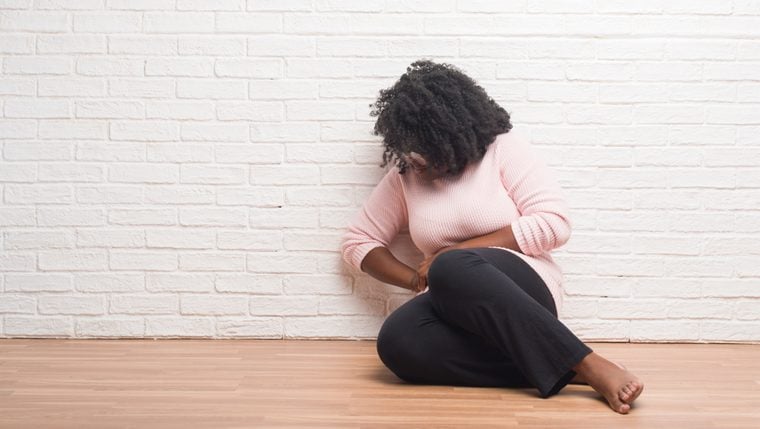
Don’t panic
Pain anywhere can make your head spin with grim possibilities, but rest assured: “Most causes are benign and temporary, like a pulled muscle, gas, or indigestion,” says Dr. Finkelston. Reach out to your doctor if you’re concerned; in the meantime, take a deep breath, and try not to stress. Just make sure you follow the things you need to do if you’re suffering from stomach pain in the morning.
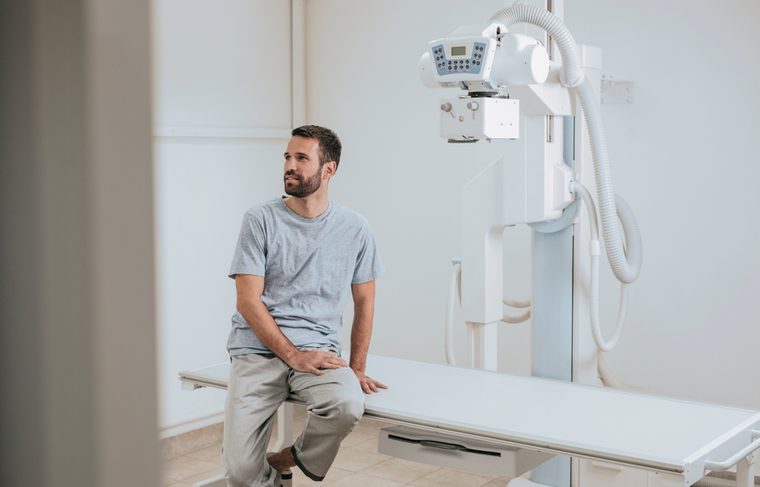
But don’t ignore it if…
The human anatomy is complex and there are many potential causes of right side abdominal pain—and some are very serious. Some of the ones that will catch your attention are problems in the gastrointestinal, reproductive, or urinary tract, and more. Getting a heads up about all the possibilities can be helpful. Here’s how to decide whether your upper abdominal pain is an emergency.
It could be… gas
Your stomach is above your belly button, so most often gas pain is centralized or to the left. Sometimes, however, it’ll radiate to the right, says Dr. Finkelston. Have you changed your diet? Did you eat a lot of foods that can make you gassy, like cruciferous veggies (broccoli, Brussels sprouts, cauliflower) or beans? Gas will dissipate with time. Try taking a walk to help move things through.

It could be… indigestion
Ohhh, what did you eat? When indigestion hits, you may feel burning in your upper abdomen, and this burning can locate to your right side. Indigestion itself isn’t serious and may happen if you eat too fast, drink alcohol or coffee, or down acidic foods like tomatoes, according to the National Institute of Diabetes and Digestive and Kidney Diseases (NIDDK). (Which helps explain why you might feel indigestion after a big Italian meal.) This type should go away on its own; if it keeps reoccurring over a period of two weeks, see your doctor, says the NIDDK.
It could be… a muscle spasm
A hard cardio session may be to blame: “Running faster than normal engages your diaphragm more than you’re used to,” says Dr. Finkelston. You may find that you feel relief when stretching your arms over your head away from the pain, she says. To avoid this next time, warm up with dynamic movements like jumping jacks or a light jog to help stretch out your respiratory system, Dr. Finkelston adds. No matter the reason, abdominal pain should always make you sit up and think about the cause–one woman learned her pain was actually colon cancer.
It could be… a hernia
Speaking of exercise, if you’ve been lifting heavy weights in the gym (or hefting heavy things at work or home), you may have developed a hernia—a condition in which tissue or an organ protrudes through the wall of a muscle, per Cleveland Clinic. Hernias can also be brought on by being overweight, and some even have a hereditary component. Old surgical sites are predisposed to hernias because the tissue there is weaker. Symptoms include pain when lifting, a dull ache in the area, and men may notice a bulge in their groin. Repair surgery may be needed. Not all signs of a hernia are obvious; here are 7 to watch out for.
It could be… appendicitis
When you have right side abdominal pain, this is by far the most common suspect, as the pain is in the exact location of your appendix—a tube-like organ attached to the large intestine. If it is appendicitis: “The pain usually starts out around your belly button and then moves to the lower right quadrant,” says Dr. Finkelston. She says you may notice that you feel more uncomfortable sitting still or lying flat in bed. Don’t blame yourself. “There’s nothing you could have done to avoid it. There’s no specific trigger for appendicitis,” she says. Call your doctor; if you’re not treated, the appendix can burst. Belly pain is one thing; these are other serious symptoms of appendicitis to watch out for.
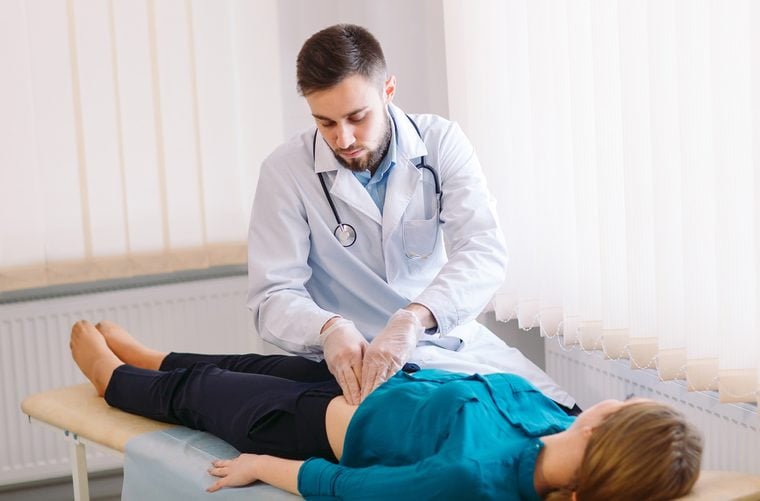
It could be… an ovarian cyst
Women have an ovary on each side of the uterus. Sometimes cysts—fluid-filled sacs—can form on an ovary. Most of the time an ovarian cyst clears up on their own and women barely notice them, according to Mayo Clinic. However, cysts can be large enough to cause pain, and if the cyst is on your right ovary, that’s where you’ll feel the ache. See your doctor if the pain is sudden or severe or if you experience fever or vomiting.
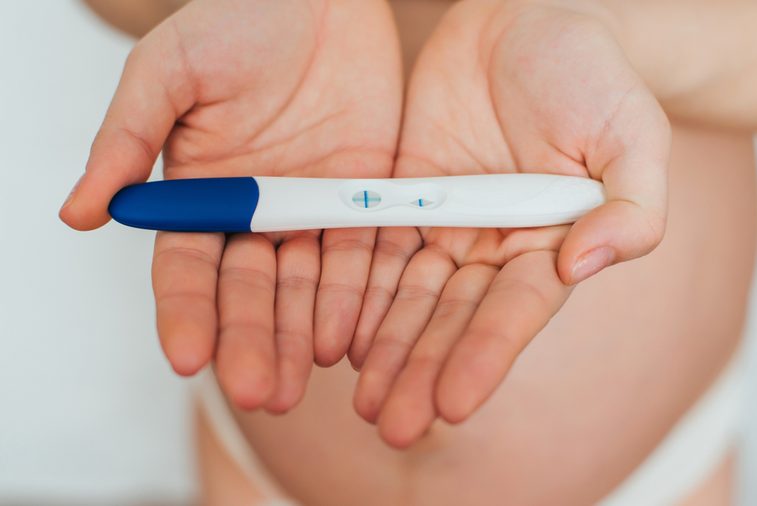
It could be… an ectopic pregnancy
Rarely, a fertilized egg can implant outside the uterus, often in one of the fallopian tubes. Called an ectopic pregnancy, this is clearly only an issue for women of reproductive age. If you happen to be trying to conceive or could be pregnant because you’re not using protection, that’s important information for your doctor to have. “This can appear as serious localized pain in your right or left side,” says Dr. Finkelston. “A pregnancy test should be part of the workup to rule this out,” she adds. Abnormal vaginal bleeding or pelvic pain are other symptoms of an ectopic pregnancy.
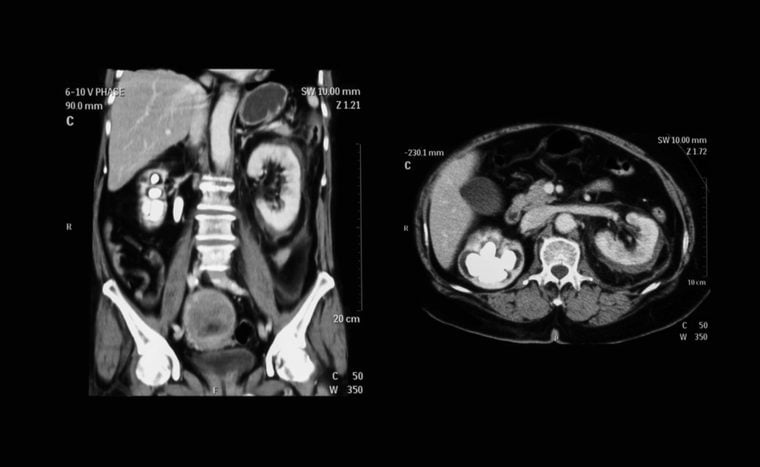
It could be… a kidney stone
A classic symptom of a kidney stone is low back pain, lower abdomen, or groin says the NIDDK. Some people may feel the pain radiate to one side of their abdomen, says Dr. Finkelston. The pain can also change location—a sign that a stone’s making its way through your urinary tract, she adds. Other symptoms of a kidney stone include pain while urinating, blood in your urine, nausea, and vomiting, the American Kidney Fund points out. If you have left-side abdominal pain too, here’s what that could mean.
It could be… a fecal impaction
Here’s another reason to stay regular. “Most stool is stored on the left side in the rectum,” says Dr. Finkelston. However, if chronic constipation is bad enough, it can lead to a fecal impaction, where stool gets stuck in your body, she notes. Other symptoms of fecal impaction include abdominal cramping and bloating, lower back pain, and bladder pressure.
It could be… a gallstone
If the pain is in the upper right of your abdomen, it might be due to a gallstone—especially if the pain worsened after eating or came on after a fatty meal. “We often see this in women, particularly those who are in their 30s or 40s,” says Dr. Finkelston. Your gallbladder is an organ that releases bile which helps you digest food. Your gallbladder can start to form gallstones if you have high levels of blood fats, estrogen, or have obesity. Regardless of the source, when the stones block bile ducts (a gallbladder attack), sudden pain can hit. One telltale symptom of a gallbladder attack: The sensation radiates between your shoulder blades or localizes in your right shoulder. If you’re having symptoms, you may require surgery to remove the gallbladder. Hopefully, though, the gallstones can be treated medically.
It could be… too much ibuprofen
Taking NSAIDs like ibuprofen can irritate the lining of your stomach, bringing on a burning sensation. While it’s more common to have generalized abdominal pain, as well as indigestion, heartburn, or bloating with this type of irritation, the pain can localize in the upper right abdomen, per Mayo Clinic. Taking too many NSAIDs can also cause abdominal pain, along with nausea, vomiting and diarrhea and, in some cases, even lead to ulcers. You can avoid trouble by sticking to your doctor’s instructions on how long and how much to take of these drugs. Don’t miss these reasons why your back pain treatment isn’t working.
When you should seek help
Maybe your dull ache has morphed into a sharp pain. Or the discomfort was vague and across a broad area, and now it’s localized to where you can point to the spot with one finger. An inability to sit up, vomiting, or feeling off-balance are other signs that you need to be seen by a doctor right away, says Dr. Finkelston.
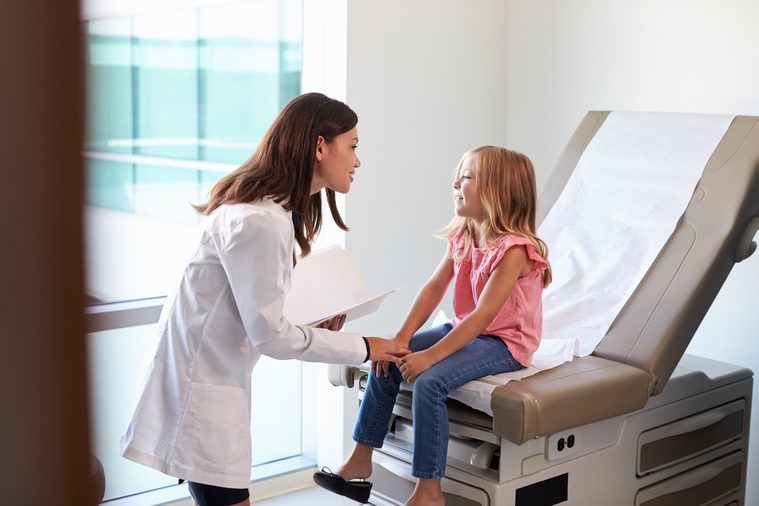
When the patient is your child
Kids’ pain can be tough to figure out. If they’re complaining of right side abdominal pain, one way to assess the seriousness of it is to ask this question, says Dr. Finkelston: “What is your favorite meal? Would you want to eat it right now?” If the answer is no, that will let you know that the discomfort is really an issue. Another sign: If their behavior is “off” in some way. If they just don’t seem themselves and something doesn’t feel right, seek help. Check out the 10 pain symptoms you should never ignore.



